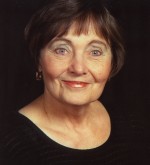A confession: When I was asked to write something for the WISDOM BLOG, I had to admit that I was not aware of this part of the AOSA website, and I found the invitation to share WISDOM somewhat intimidating. However, my fears were soon brought to rest and I agreed to write about a topic that is dear to my heart, the Alliance for Active Music Making. As I continue to explore the impact of Orff Schulwerk on my life and the infinite possibilities for Orff Schulwerk in the future world of music education, this brief article will describe my view of the connection between Orff Schulwerk and the AAMM, as seen through the lens of the “4 C’s” concepts: Communication, Collaboration, Critical Thinking, and Creativity (see www.P21.org).
The Alliance for Active Music Making (AAMM) can trace its beginning to the questions asked by AOSA Past President Linda Ahlstedt, who wondered why the student teachers she was asked to mentor seemed to know almost nothing about Orff Schulwerk. The history and development of the Alliance can be found on the website: www.allianceamm.org. Today the AAMM continues to grow and evolve as a unique support for AOSA’s mission, through “demonstrating the value of Orff Schulwerk, promoting its use, and supporting professional development of AOSA members.” Members of the Alliance share a common commitment to the education of future teachers, and we believe Orff Schulwerk can and must play a vital role in their undergraduate preparation. This is especially important for those who will teach general music, but also for future choral, instrumental, and elementary classroom teachers.
Our curiosity and desire to learn about many possibilities for teaching and learning music immediately leads to exploration of related pathways, with a primary focus on the approaches and teaching/learning philosophies of Zoltan Kodály, Emil Jaques-Dalcroze, and Edwin Gordon. Beginning in 2003 with the AOSA National Conference in Louisville, every AOSA conference has included a session or double session devoted to the exploration of all four approaches.
In the spirit of Orff Schulwerk, we believe that direct experience with active music making and movement comes first, followed by time for reflection, discussion, and sharing ideas. Through sessions which include presentation of lessons representing each approach, the AAMM has endeavored to engage conference participants in analyzing differences and similarities, comparing the level of potential student engagement in each approach, and asking questions leading to greater understanding of each approach in relation to the others. At some conferences, the AAMM has offered the alternative of a panel discussion, providing more opportunity for teachers of undergraduate music methods classes to ask questions and share issues, concerns, and successes related to inclusion of the active music making approaches in college and university environments. At the 2015 San Diego conference there will be a pre-conference Symposium and a double session featuring master teachers of Orff, Kodaly, Eurhythmics, and Music Learning Theory…look for them in the Conference Guidebook.
Why is this important? Where is it taking us? Is the AAMM addressing a need in music education? My answers are in the framework of the 4 C’s. Through COMMUNICATION we develop understanding of differences and similarities between various approaches to teaching and learning music. Through COLLABORATION we deepen our understanding by working together toward a common goal or solution of a problem. CRITICAL THINKING is essential as we consider changes that may be needed to adapt teaching and learning activities to current needs. As we are introduced to new and/or different ideas, how will our teaching/learning practice change? Should anything be discarded? What should be added? Our own CREATIVITY is brought into play as we consider these questions and continue to explore and grow as teachers and learners.
My own love and appreciation for Orff Schulwerk has grown deeper and stronger as I have had the opportunity to communicate and collaborate with teachers representing other approaches. I’m grateful to AOSA for being an organization where critical thinking and reflection is encouraged. VIVA LA MUSICA!
Please address questions, comments, and feedback to jbond@uwsp.edu. I would love to have further discussion!

